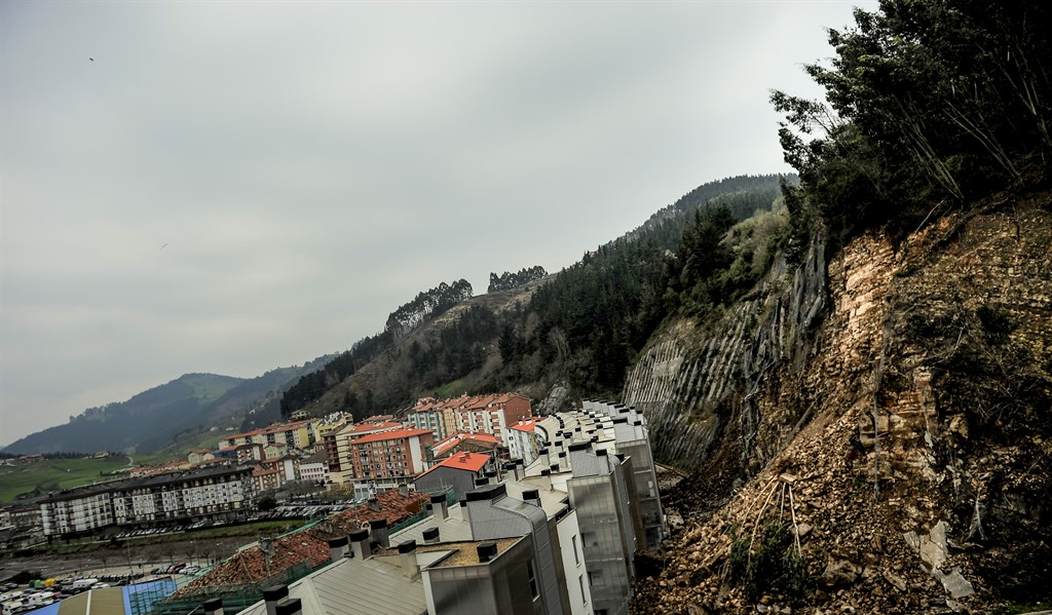When I arrived at the Donostia-San Sebastián City Hall, in the beautiful Basque Country of Spain, I wondered what all the ruckus was about. There were hundreds of noisy protesters waving long, colorful banners.
My goodness, how interesting to witness acts of political agitation on the public square in another country. I might see history in the making, I thought. Of course, do not cast me as an adventurer: I hoped for nothing too newsworthy — you know, if it bleeds, it leads, and all. I’m just not as fleet of foot as I once was.
Yet, still I took a positive attitude: I might even learn something.
Then, atop the crowd some 20 feet opposite the protest, I spied Daniel Schily, from Germany. Daniel stands quite tall, both in inches (or meters, your choice) and as a key activist, funder and cheerleading motivator of the direct democracy movement in Germany. And worldwide, too, through Democracy International.
Which makes him a saint in my book.
After greeting, he drily brought me up to date: “They’re protesting us.”
I didn’t believe him for a second.
“No, really, I asked, “what are they protesting?”
“Really,” he said, seemingly sincere. “They’re protesting the Global Forum.”
Completely uncertain whether he’s pulling my leg, I stood there dumbstruck, for a moment, before I noticed one sign written in English: “Global Forum on Modern Direct Democracy,” with a very large, black, bold question mark beside it.
Oh, my goodness, Schily wasn’t kidding.
In almost no time, I also met up with Bulgarian writer and activist Daniela Bozhinova; Jung-Ok Lee, a South Korean sociology professor, who leads the Korea Democracy Foundation; Uruguayan David Altman, a political scientist at the Catholic University in Santiago, Chile. I was more than familiar with each of them since either the 2010 Global Forum, which Citizens in Charge co-sponsored in San Francisco, or the 2012 Forum in Montevideo, Uruguay, or their visits to the U.S. — usually on scholarly pursuits.
Recommended
We all seemed to have the same reaction: isn’t this a splendid start! How could a political conference begin more auspiciously than to have hundreds of interested parties at its opening reception?
You see, we value the right to protest, the right to speak out, and more. We had gathered in this “cultural capital of Europe” precisely because of our belief that all people have a right to political representation, through representative democracy, yes, but even further through direct democracy — ballot initiatives and referendums — that can end-run politicians.
To truly be “represented,” free individuals must be able, when necessary, to represent themselves. The term limits movement in the United States had taught me that much.
The leader of the protest sported a bullhorn; probably 200 strong chanted slogans or something. How would I know? I know far less Spanish now than I did in the ninth grade, when . . . well, let’s just say it wasn’t my best class.
During a lull, Daniel walked up to the guy with the megaphone hoping to find out their grievance. And right away an impassioned plea was delivered in English via the bullhorn, and, again, not two minutes after that, in Schilly’s native German.
Talk about service.
Theirs is the Satorralaia neighborhood movement, trying to block a proposed through-station for the mass-transit metro system. Their beef is clear and straightforward: even after gathering nearly 9,000 signatures on petitions requesting a public referendum on the Underground project, the city government continues to ignore them.
What does that have to do with our Global Forum?
The city council is a “co-organizer” of the forum. A flyer written in Basque, Spanish and English, which the protesters were passing out, attacked the hypocrisy of the city council for blocking their local referendum, while claiming the city is “The World Capital of Democracy.”
Most certainly, the several hundred forum attendees, including a woman from Gdansk, Poland, are in “solidarity” — not necessarily with the protesters’ position on the subway, but with their right to be heard and to directly and democratically appeal to the electorate for a redress of grievances.
Following the protest, and a not-too-long-delayed opening night reception, the Global Forum put freedom-loving people from 30 countries and six continents together to passionately discuss the importance of democracy, human rights and citizen control of government.
Rather than the reverse: government control of citizens.
We talked about successes in Madrid and Italy and elsewhere in providing processes for citizens to participate in government — as sovereigns, not subjects. And we commiserated with each other on the failure to overcome powerful and entrenched anti-democratic forces from Bulgaria to Colorado.
The forum concluded with a consensus declaration observing an awful paradox: “The people of the world have never been more closely tied together, and yet government has never seemed further away from the people.”
We’re hardly alone. People across the globe recognize the problem.
And the solution, at least for the hundreds of us who gathered in Donostia-San Sebastian these last three days, is simple but difficult: a commitment to political innovation and agitation until “initiative and referendum rights” are “incorporated” into every government at every level, in order “to make our representative democracies truly representative.”
Representation designed to serve the people, and not just the politicians.
























Join the conversation as a VIP Member